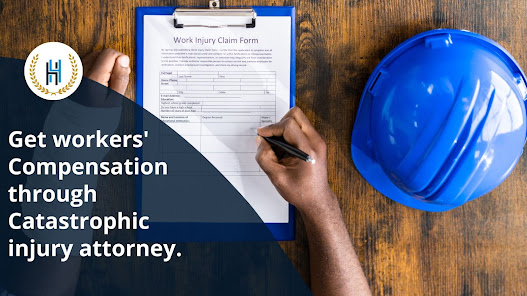What Happens If Your Work Injury Is Not Qualified For Workers’ Compensation?
Contrary to popular belief, workers’ compensation does not cover all workplace injuries. Several requirements must be met for a work-related injury to qualify for workers’ compensation. If you have been injured on the job, it is crucial to comprehend the workers’ compensation process and what will occur if your work injury is not covered. Learn what happens if your workplace injury does not qualify for workers’ compensation by reading on.
What Is Workers’ Compensation?
Workers’ compensation is an insurance system that provides benefits to employees who are injured or become ill on the job. Medical expenses, income replacement, and death benefits are examples of available benefits.
A work-related injury is required for workers’ compensation coverage. This means that the injury must have occurred because of work-related activity and while the employee was performing work duties.
There are, however, a few exceptions to this rule. For instance, workers’ compensation may still apply if an employee is injured while commuting to or from work.
What Are California’s Eligibility Requirements for Workers’ Compensation?
To qualify for workers’ compensation, the employee must be employed in California, and the injury or illness must have occurred during employment. An employee may be eligible for medical benefits, income benefits, and death benefits if they meet these eligibility requirements.
Workers’ compensation is a no-fault system, so an employee is not required to prove that their employer was at fault for their injury or illness to receive benefits.
Workers’ compensation is an essential protection for California employees. If you or a loved one are injured on the job, it is essential to understand the eligibility requirements.
How Do I Know If My Work Injury Is Covered by Workers’ Compensation?
If you were injured on the job, you may wonder whether workers’ compensation will cover your injury. Several factors can help you determine whether your injury is covered. Check your employer’s workers’ compensation policy first. You can also contact the workers’ compensation board in your state. If you are unable to figure it out, you can always consult with an attorney.
If you are still uncertain, contact the workers’ compensation board in your state. The board can provide information about the workers’ compensation process and assist you in determining whether your injury is covered.
What Happens If My Work Injury Is Not Covered by Workers’ Compensation?
If your injury is not work-related, you will not be eligible for workers’ compensation benefits. This means you will have to pay for your medical care and may need time off work to recover.
If workers’ compensation does not cover your work injury, you may be able to sue your employer for personal injury. However, it is essential to note that these lawsuits can be extremely complex and difficult to win. You will likely require the assistance of an experienced attorney to guide you through the procedure and assist you in constructing a compelling case.
Conclusion
If your work injury does not qualify for workers’ compensation, you may still be eligible for benefits through alternative channels. Among your options are filing for Social Security Disability Benefits and suing your employer. If you are uncertain of your next steps, you should contact an experienced attorney at DYS Law Group or call (213) 855-4749, who can assist you in navigating the legal system.



Comments
Post a Comment